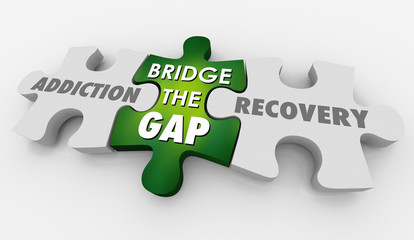Detoxification is the process of removing drugs and/or alcohol from the body. Depending on the toxins, it can take anywhere from three to ten days.
The sole purpose of the procedure is to re-establish physical health through the elimination of dangerous substances from the bloodstream.
Detox is often accompanied by intense levels of side effects, which is why it should be monitored by a clinician
The outcomes of detox include reduced anxiety and lack of behavior control. And yet, there is a vital consequence of the process that is regularly forgotten — one that is often unknown to addicts and sometimes dismissed by professionals. After detox has occurred, an addict will go through a period known as Post-Acute Withdrawal Syndrome (PAWS).
Paws Withdrawal Symptoms
Did you know there are two phases of withdrawal after detoxification? If you answered “no,” you’re not alone. Many addicts and medical professionals are baffled by the nature of the experience because it affects each individual differently. In general, however, PAWS is the period that takes over after acute withdrawal.
The length and severity of this phase depend largely on the nature of the addiction before detoxification. In other words, the heavier the usage before detox, the greater the PAWS symptoms.
Signs and Symptoms
Recovering addicts suffering from PAWS may experience challenging emotional and physical symptoms, even when there are no traces of drugs or alcohol in their system. The most common indicators of PAWS include lack of focus, sudden mood changes, depression, anger, anxiety, and sleep deprivation.
Controlling PAWs
Here’s the deal, there’s really no way to get around this phase. Yes, it may vary in severity from person to person, but it does occur. It’s the body’s natural way of re-establishing equilibrium.
Substance abuse changes the brain — not just to need — but to thrive on harmful toxins. This is a terrifying truth that accurately illustrates the challenge of removing addictive substances. Not only does the body need to snap back to its original working form, but the brain has to learn a new normal without drugs or alcohol. The PAWS period is a necessary step toward that recovery.

Mind Alteration
A brain on drugs, especially opioids, will learn to stimulate its production of endorphins in favor of creating more opioid receptors. To illustrate our previous point, the brain essentially learns to change its structure to fit the addiction.
Then, with an overpopulation of opioid receptors, the brain becomes increasingly more sensitive to pain. What’s more, the brain can no longer reach the same level of pleasure naturally, causing further abuse.
This becomes a gigantic problem when we consider that dopamine, our body’s natural endorphin, plays a major part in regulating our mood. During PAWS, the brain is so severely depleted of dopamine that it cannot aid in pleasure or mood stability. Thus, the second phase of withdrawal is especially painful for recovering opioid addicts who must endure the process of regaining their natural endorphins. PAWS is also noted a period of biochemically-based depression.
Wide-Awake Feeling
Aside from major changes to the brain, addiction also affects the sympathetic division of the autonomic nervous system — the part of the body responsible for fight or flight reactions.
Essentially, addiction trips the switch so that the body is constantly hyper-vigilant and prepared. This leads to an increase in heart rate and blood pressure. It also decreases appetite. These symptoms continue into PAWS, with many addicts suffering from a wide-awake feeling. The hyper-alert, stressful awareness does deplete over time, but it can take up to six months.
How longs Can It Last?
The body and brain are working overtime to reestablish stability, and that process isn’t always cut and dry. Sometimes it takes several weeks or months for everything to come back to normal. But, it does fade. With each passing day of sobriety, the body grows stronger and the symptoms eventually subside. Are you ready to start the process? Check out our fully accredited drug and alcohol detox programs!

Why wait, Stop Alcohol Addiction Here
If you or a loved one is addicted to alcohol or drugs, please reach out for help sooner rather than later. United Recovery Project offers counseling, rehabilitation programs, and support for those who need it most. Please give us a call or read our blogs and material for more information about drugs, alcohol, and addiction.
References & Resources
Withdrawal syndromes Impacts on patients


